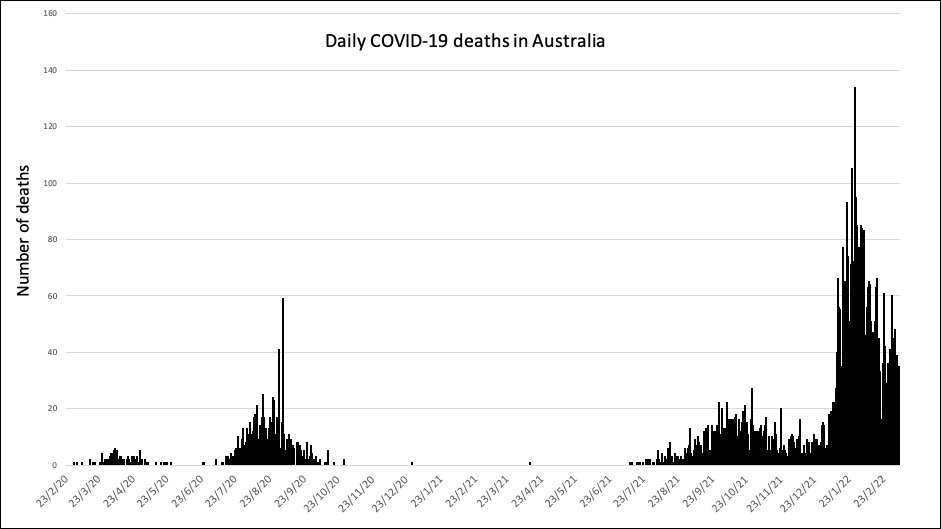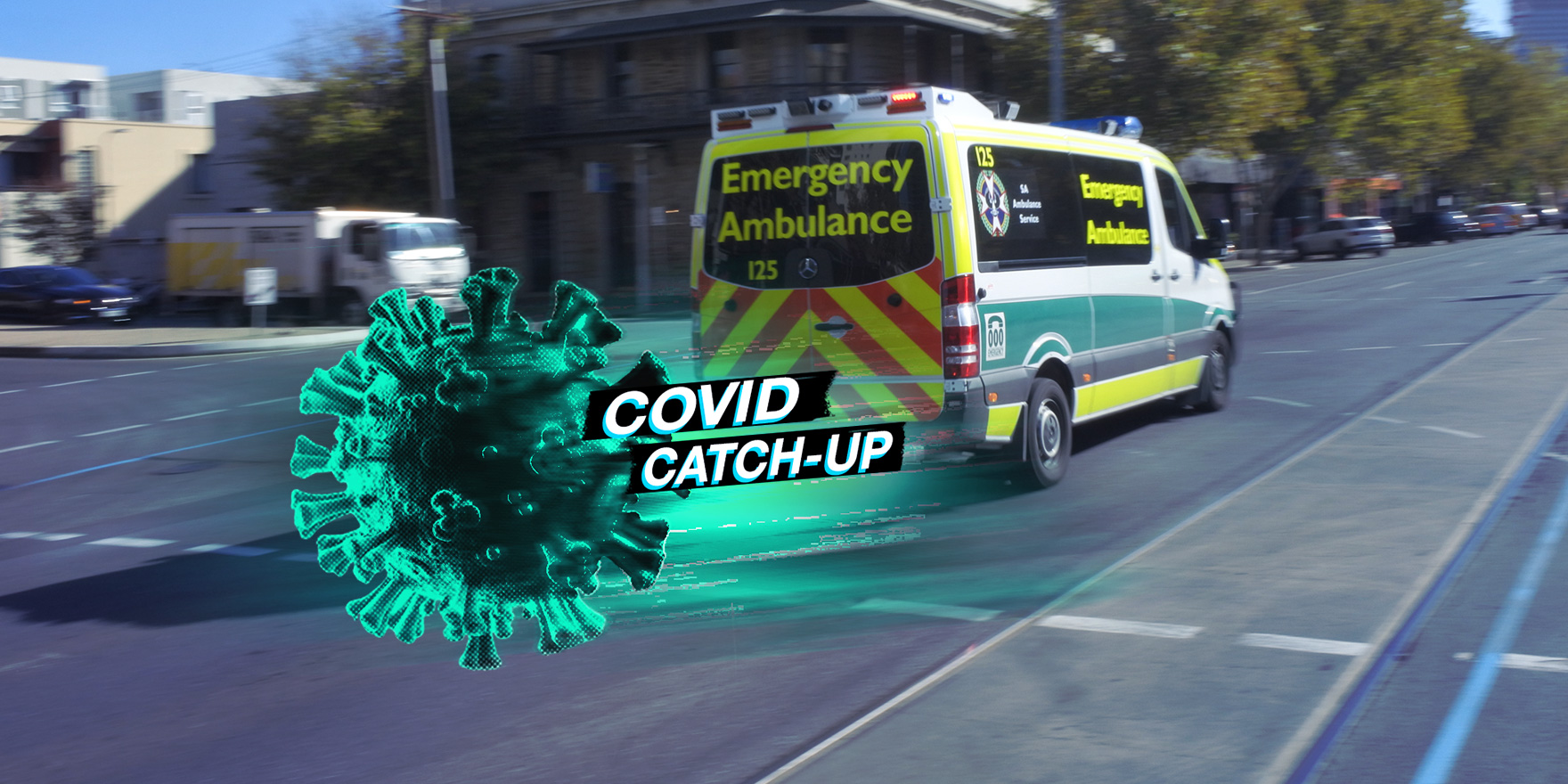And mortality rates at six months in covid patients who were ventilated are similar to those in ventilated patients without covid.
Welcome to The Medical Republic’s Covid Catch-Up.
It’s the latest covid-19 news in one convenient post. Email bianca@biancanogrady.com with tips, comments or suggestions.
10 March
- NSW health authorities are concerned that BA.2 Omicron subvariant infection rates are increasing.
- Mortality rates at six months are similar between patients ventilated for covid and those ventilated for other respiratory conditions.
- WHO says kids under five don’t need masks, but those 12 and over should mask like adults do.
- Global decline in covid infection rates slows.
- Covid killed 227 Australians in the past week.
Cases are once again rising in NSW, and the BA.2 subvariant of Omicron is apparently to blame, according to a report in Nine newspapers.
State Health Minister Brad Hazzard told a state budget estimates hearing earlier this week that cases could double in the next four to six weeks, with one expert telling the newspaper that this was largely due to the increased transmissibility of the BA.2 subvariant compared to the original Omicron variant.
The latest NSW Health data shows BA.2 made up around one-third of sequenced infections at the end of February.
Covid patients who had mechanical ventilation have similar outcomes to patients ventilated for non-covid related acute respiratory failure, a study has found.
A paper published in the American Journal of Respiratory and Critical Care Medicine reports the findings of a prospective observational study in which 199 critically ill patients without covid and 120 critically ill patients with covid were followed up for six months after admission and ventilation.
While the covid patients were generally older and spent longer on ventilation than those without covid – 12 days compared to 4.8 days on average – at six months there were no significant differences in mortality or the incidence of new disability between the two groups.
Children aged five and under do not need to wear masks, those aged 6-11 should wear masks in indoor settings where transmission rates are high, and those aged 12 and over should follow the same mask advice for adults, says the World Health Organisation.
In the latest update to its guidelines on infection prevention and control, WHO acknowledged that there was a paucity of evidence either for or against mask-wearing in young children, but found “low certainty” evidence for mask-wearing in those aged 6-11 in indoor settings either with poor ventilation or where physical distancing wasn’t possible.
However, it made a strong recommendation for children aged 12 and over to adopt the same mask-wearing approach as adults.
Children with cognitive or physical impairments that make mask-wearing difficult should not be required to wear a mask.
Meanwhile, a modelling study suggests that mask-wearing should be maintained for some time even after covid vaccination rates in a population reach target levels, particularly in winter and with variants that are either more transmissible or immune escape.
The study, published in The Lancet Public Health, used a computational model of the spread and impact of covid in the US that included the effects of vaccination and mask-wearing, as well as examining healthcare costs.
The researchers concluded that mask-wearing was a highly cost-effective measure and should be maintained for 2-10 weeks after population targets for vaccination coverage were reached. For example, even at 90% vaccination coverage, continued face-mask use would avoid more than six million new cases, more than 136,000 hospital admissions and around 16,000 deaths.
The authors commented that mask-wearing made a difference to infection rates because viral transmission didn’t immediately stop once vaccination targets were achieved, so maintaining mask use for a period of time after that would provide greater protection until numbers did subside.
The rapid decline in new covid infections globally has started to slow down, with only a 5% drop in cases and 8% drop in deaths this week compared to the previous week.
The latest update from the World Health Organisation reported decreases in new infections across all but one major region. However, WHO noted that, “these trends should be interpreted with caution as several countries are progressively adopting targeted testing strategies, resulting in lower overall numbers of tests performed and consequently of cases detected.”
Covid claimed 227 lives in Australia in the past week.



